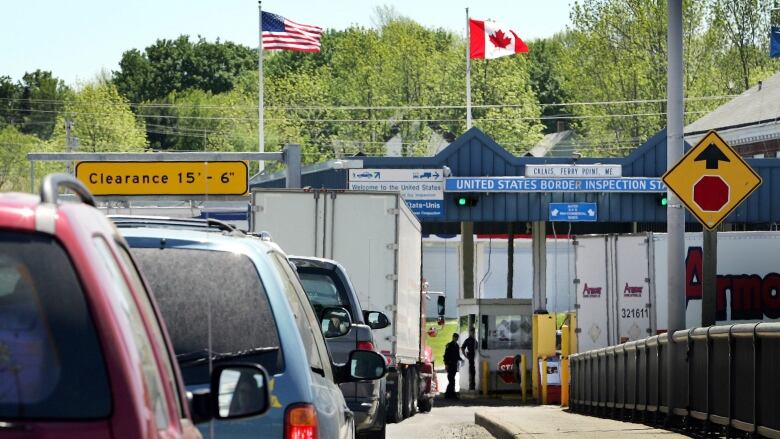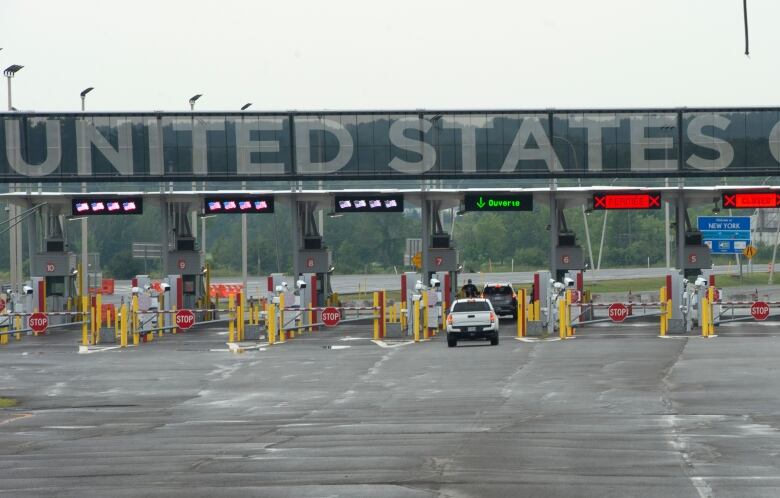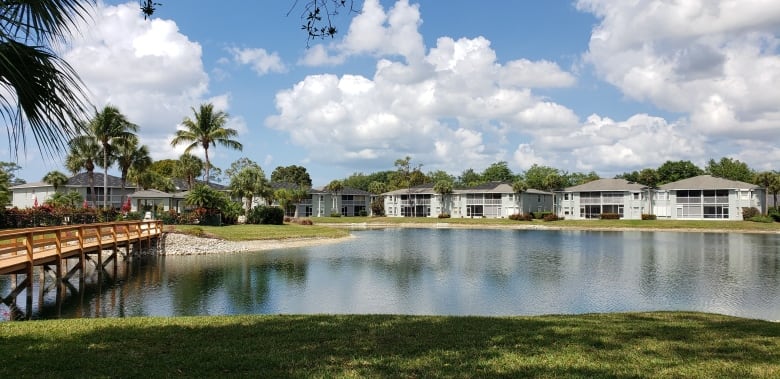New Brunswickers prepare for slow return of travel across U.S. land border
Canadians can now enter the U.S. with proof of vaccination

While Aurel Schofield didn't mind his last winter in New Brunswick, he's looking forward to trading his Dieppe home for the warm sun of his condo in Naples, Fla.
The reopening of the U.S. land border on Monday is welcome news to snowbirds and those looking to visit friends and family. Travellers will need to be fully vaccinated and meet testing requirements when they return home.
When Schofield was last in Florida, he was forced to rush back home as the pandemic began in March 2020. Now, he's looking forward to returning to the ocean among thousands of Canadian snowbirds flocking south.
"We rent boats, and we go out on the open water, and we go up in the Everglades," he said.
The reopening comes more than 20 months after the U.S. and Canada jointly closed their land borders to prevent the spread of COVID-19.
Testing requirements remain
Many businesses in northern Maine are reliant on cross-border customers from New Brunswick, who buy cheaper gas, milk and groceries in the U.S. Thousands of parcels have been piling up in mailrooms and international package-handling facilities.
While those communities have been desperate for international travel to resume, requirements for returning to Canada will make those short shopping trips difficult.

Travellers returning to New Brunswick from Maine or other U.S. destinations will need a negative COVID-19 molecular test taken within 72 hours of arrival. They will also need to upload proof of vaccination and additional travel information to the ArriveCan app up to 72 hours before crossing the border.
Rapid antigen tests, including the kits distributed by the New Brunswick government, are not accepted.
Some travellers, even if they're fully vaccinated, may be randomly selected for a second post-arrival test.
Hoping for cross-border traffic
In Houlton, Maine, a community just 20 kilometres from Woodstock, locals expect those complicated restrictions will deter Canadian shoppers from venturing to U.S. businesses.
Jane Torres, executive director of the Greater Houlton Chamber of Commerce, said businesses have been finding ways to survive without Canadian customers but hope they start to return.
"We're hoping when the border opens on Monday that there's more crossover, that people are more comfortable coming back and forth."
Canada reopened its border to fully-vaccinated Americans on Aug. 9. That delay in easing restrictions for both countries sparked frustration in many cross-border communities.

Torres said many residents in the Houlton area have held off on visiting New Brunswick because of the negative test requirement. The nearest testing site in Maine is more than 190 kilometres south in Bangor and costs about $110 out-of-pocket if it is for travel.
"I would like to see it be like it was before my wish is that you wouldn't have to be tested," she said.
In Woodstock, Mayor Arthur Slipp said both the border requirements and COVID-19 safety concerns will likely deter back-and-forth travel from returning to pre-pandemic levels. He expects snowbirds will flock to the border, while daytrippers might hold off.
Slipp said Black Friday sales in Bangor this month are typically a big attraction for Carleton County residents and could lure some to cross into Maine.
"I think it's going to take a bit of time for people to become comfortable with the protocols that they're going to have to deal with," he said.
Waiting for a vaccine booster
Snowbirds can packtheir bags and begin driving to Florida on Monday.
Schofield, a retired family doctor, normally leaves in late October. This year, however, he's waiting until early January to start the more than 3,200-kilometre drive to Naples to allow time to get a third dose of the vaccine.

An estimated 300,000 Canadian snowbirds normally travel to the United States and Mexico for winters, according to Statistics Canada. Despite the land border shutdown and high COVID-19 case numbers last year, some decided to head south anywayby flying.
The snowbird said he's looked closely at vaccination rates from the U.S. Centers for Disease Control. His winter home is in Collier County, which has an older population and vaccinationrate of 72.2 per cent for the eligible population.
"You can't hide from it and it won't disappear soon, so you have to live with it, and take all the best precautions that you can," he said.












_(720p).jpg)


 OFFICIAL HD MUSIC VIDEO.jpg)
.jpg)



























































































